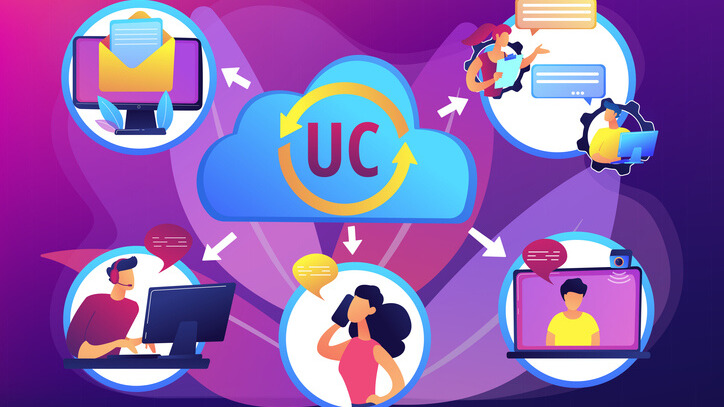David and Tim Booth, who are, incidently, not related, founded aspirational internet retail business I Want One of Those (IWOOT) with two other partners in 2000. The company was initially funded with £15,000 provided by three out of these four.
Despite launching at the time of the dotcom bust (and seeing £2.5 million of ‘promised’ venture capital investment disappear overnight), the business grew rapidly. By the summer of last year, annual sales had hit £7 million and operating profits were just shy of £200,000. For the year ahead, turnover was expected to jump past the psychological £10 million mark and profits were forecast to surge.
It was at this juncture that IWOOT embarked upon a major project to overhaul its IT systems to prepare for the expected quantum leaps the business hoped to make in the years ahead.
Mis-communication on a massive scale
As David Booth explains, ‘our company had always been proud of its back office operations, and its ability to give consistently prompt responses to customer orders and queries; so much so that we decided to upgrade the IT systems to keep pace with the rate of development.
‘We had incredible growth and we were quite bullish. We had previously moved from operating via Excel spreadsheets to off-the-shelf software packages to manage our orders, inventory and queries. We figured that advancing to a comprehensive, fully integrated e-commerce system finely tuned to our business model would not be much of a problem.’
The new system consisted of an MS Commerce Server-base (for the rapid development of e-commerce sites) with a bespoke ASP.net application (for building web pages). It was built by an external company, but all the design, maintenance and ongoing development was (and still is) conducted in-house.
‘We spent money on the back- and front-end systems, only to see both of them fail,’ recalls David.
The system first showed signs of serious distress at the beginning of September 2003, soon after it was integrated with other existing technology and four months before Christmas, traditionally the company’s busiest sales period.
‘We realised the system had actually crashed when we checked it seven minutes after an initial flaw and realised it was still processing the same order from one person. I was at a matinée at the theatre when our technical team rang and said the crash was bad. So bad in fact that it would not take days, but maybe weeks or even months to fix.
‘In short, we’d spent all this money building a solid front- and back-end, but had totally failed to realise that there was a fundamental bit missing in the middle!’
The cash and reputation disappearing act
He estimates that up to £2 million worth of business was lost. ‘Between November and December, we get around a million visitors who are unique – and we make ten times the amount of sales than at other times of the year. People were still coming onto the site, but it was too slow and operations had to be slowly wound down to minimise the impact. We were operating, but on a massively reduced scale.’
Worryingly though, it wasn’t just a cash problem for the group. It had to think of its reputation and safeguard the goodwill built-up since creation.
Mending and making do
As a growing company, IWOOT did not have the resources at hand to cope with such technical deficiencies.
‘We couldn’t afford to get extra staff in so we contacted a charity that we personally knew, which worked on behalf of people who found it difficult to get jobs via conventional routes. These wonderful people worked for us at the same rate as we paid other staff, but were much more flexible. We thought outside the box to try and get round things,’ explains David.
As for the actual IT problems, a pragmatic approach was adopted.
‘We basically built skins over the old system, patching it up. It wasn’t a seamless display of information but it did a fantastic job,’ acknowledges Tim Booth.
As both David and Tim admit, the key to helping them through this make-
or-break time was the spread of skills from the management team.
‘Finding a solution required a balance of the creative and the anal. The net result, however, is that we’ve been much more cautious this year compared to others. We made a modest operating profit in 2004 but it was not huge and we did not break even. But we also had to bear the costs of removing a shareholder and consolidating the new IT system. All these costs came out of our working capital, so we lost a lot of potential profit,’ acknowledges David.
Now for expansion
Having spent the last year stabilising the business, David and Tim believe the company is ready to move on.
It has invested heavily in a business-to-business website which officially launched in September called I Want Lots of Those. Prior to this it was a paper-based business catalogue. Another fruitful line of work could be an innovative brand extension programme with the likes of travel companies and holiday groups such as I Want to Go There and I Want to Do That.
Says Tim, ‘this time last year we were in tears when the system went down. Without doubt, technology has been our biggest hurdle. But it’s now solved and we are in a position to expand once more, having done all the hard work.’
FIVE HARD LESSONS LEARNT
- IWOOT’s catalogue is now one of its most in-demand products, but the first version was the wrong feel, wrong size and cost too much to produce, so only a limited number could be sent out.
- Getting suppliers on board took two long, hard years – no one had any faith in the business until it started making a decent volume of sales.
- To begin with, fulfilment was outsourced to a traditional mail order company – with disastrous consequences, as goods were delivered anytime up to 28 days from the order being placed. Since then, fulfilment has been done in-house.
- A recruitment company was used to help fill a senior position, but it all ended in tears. People are now recruited by word of mouth.
- One of the founding partners left last year under less than amicable circumstances. But as Tim Booth explains, ‘it was unavoidable, but the right thing to do. You have to be singing the same song – he wasn’t so we bought him out.’






